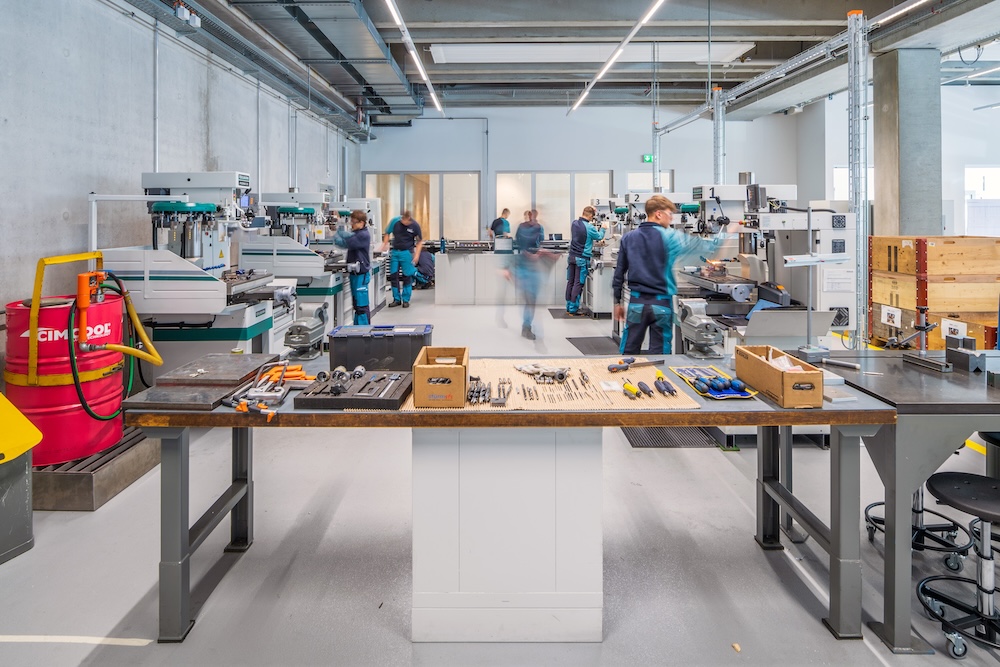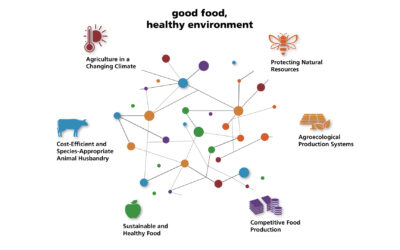Bühler introduces vocational fast-track training

Valley partner Bühler recently unveiled the Vocational Fast Track, a new form of vocational training for its customers. The programme enables companies to send employees to Bühler for several weeks or months to complete a compact apprenticeship based on the Swiss model. Classroom instruction at Bühler’s in-house training center is combined with hands-on experience in real production environments.
“The Vocational Fast Track offers companies an unprecedented opportunity to build skills in a focused and efficient way,” said Irene Mark-Eisenring, Chief Human Resources Officer at Bühler. “We bring the strengths of the Swiss dual education system – the close integration of theory and practice – into a compact and scalable format for industrial needs.”
This new offering directly addresses some of today’s most pressing labor market challenges: growing skills shortages, increasingly flexible and unstable job markets, and rising education costs. In this context, continuous training and upskilling are becoming increasingly important.
A pioneer in vocational training for over a century
Bühler has been a pioneer in vocational training for more than 110 years, having trained its first apprentices as early as 1915. Since then, the company has continuously advanced and modernized its approach to vocational education. The Vocational Fast Track initiative builds on this foundation and reflects Bühler’s broader, long-standing commitment to education and training.
Education is deeply embedded in Bühler’s DNA and spans a wide spectrum – from developing young talent in Switzerland and abroad, to supporting employees through continuous learning, and collaborating with universities, industry associations, and policymakers to help shape the workforce of the future. Apprenticeship programs are run in 26 locations across Europe, North and South America, Middle East and Africa, and South Asia. Bühler’s ambition extends beyond meeting its own talent needs: it aims to strengthen the wider industrial ecosystem by investing in people and skills.
Today, Bühler trains more than 520 apprentices worldwide, 40% of whom are based outside Switzerland. Since the foundation of the programme in 1915, more than 8,400 young professionals have completed an apprenticeship at Bühler in Switzerland alone.
Dual education: an economic success model
The Swiss dual education system is internationally recognized for its strong integration of theory and practice. It delivers high job placement rates and excellent career mobility. Around 70% of Swiss students choose an apprenticeship in one of more than 230 recognized professions. This contributes to one of the lowest youth unemployment rates in the world, below 4%. Sonja Studer, Head of Education at the Swiss industry association Swissmem, said: “The economic success of Switzerland – and of Bühler – is closely linked to the dual education system. It ensures a steady pipeline of skilled workers, aligns education with industry needs, and strengthens innovation power.”
From Switzerland to the world
Bühler recognized the strategic value of dual education early on and began internationalizing the Swiss model years ago. Today, Bühler runs apprenticeship programs in Germany, Austria, the Czech Republic, India, South Africa, Brazil, and the United States. Global vocational training hubs are located in cities such as Minneapolis, Raleigh, Johannesburg, Bengaluru, Zamberk, and Curitiba.
The Swiss dual education system could play a vital role in solving current education and workforce challenges, especially in the United States. In the US, the skills gap in manufacturing exceeds 1 million unfilled positions, half of them in the industrial sector. At the same time, the cost of a college education ranges from USD 26,000 to 60,000 per year, making formal education inaccessible for many. Apprenticeships are still often viewed as a “second choice” compared to university degrees, and there is a lack of consistent national standards. Tracy Bayer, Head of Human Resources North America at Bühler, explained: “The US urgently needs scalable, cost-effective workforce development models. The Swiss dual education system is a proven solution: it is affordable, delivers high-quality skills, and creates direct pathway into qualified jobs. With our Swiss-style apprenticeship program at the Bühler Apprentice Academy in North Carolina and Minnesota, we are showing how this can work in practice.” Bühler’s US programs combine community college education with on-the-job training at Bühler facilities. Graduates earn associate degrees and journeyman certificates, with many moving into full-time roles within the company.
Education as a shared responsibility
Bühler works closely with industry associations such as Swissmem, policymakers, and local communities to adapt the dual system to different cultural and economic contexts. Irene Mark-Eisenring said: “Only through partnerships between companies, governments, and educational institutions can vocational training succeed internationally. It is a model that benefits not just individual companies but entire economies.” With the Vocational Fast Track, Bühler is taking another bold step to globalize the Swiss education model, making it more accessible and modular for the needs of industrial customers around the world.
Sign up for quarterly Swiss food innovation updates.
Latest News
Scale-up Vaud announces the 44 companies newly labelled for 2026
Scale-Up Vaud celebrates its 10th...
OneAgrix holds USPTO patent-pending status for agentic AI trade infrastructure supporting regulated global food supply chains
Valley partner, OneAgrix, a Swiss- and...
HES-SO Valais-Wallis brings together European experts for extrusion training focused on food technologies
Valley partner HES-SO Valais-Wallis,...
Agroscope’s new work programme places a greater focus on impact and practical benefits
Agroscope’s 2026-2029 Work Programme...



